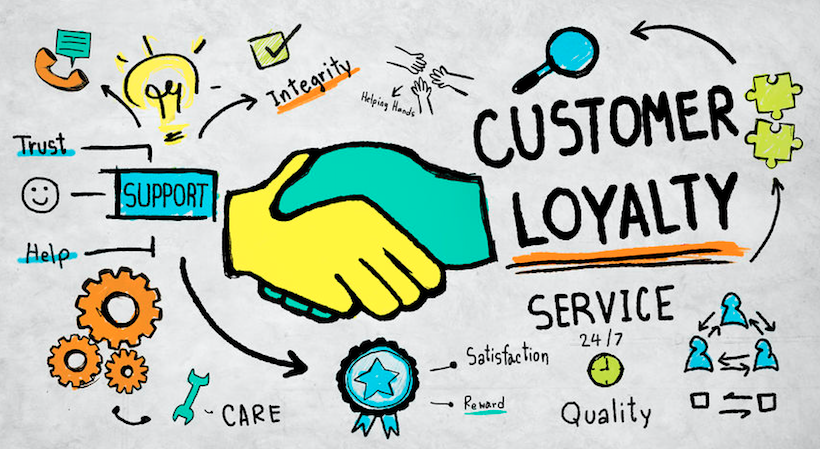Back in 2005, as I was starting my fourth company, I was warned about going up against a major ticketing monopoly in Ticketmaster. The behemoth had control of more than 93 percent of the market share and it was the status quo across every box office throughout the U.S.
Ticketmaster was formed when a number of local and regional ticketing agencies came together way back in the time of the mini-computer. After becoming successful, they set with the market share for years without having to make many changes.
It was at that point where I remembered the one thing from the only economics class I took in college: “Monopolies have no incentive to innovate.”
That became the first point of our value hypothesis: not only do monopolies have a lack of incentive to innovate, they’re so large that even if they had the ability to innovate, our smaller and more agile organization would be able to easily out-innovate them.
The other piece of our value statement focused on sales: if they are a true monopoly, they don’t have an effective sales function. Monopolies don’t need sales, they only need service because they dominate the market.
We believed that not only would they find it hard to catch up technically in terms of product innovation, but also that they would find it very hard to mobilize a sales effort against us.
That being said, we knew that just because they couldn’t out-innovate or out-sell us didn’t mean that they didn’t have the market power to try to thwart us and create a longer ramp to get into the market.
Based on these hypotheses, we decided to move forward in creating a new kind of ticketing experience, with a caveat to our investors. While a normal venture cycle is about three to five years, we made sure our investors understood that this was likely going to be a seven to 10 year play. It couldn’t be a traditional venture capital cycle of a normal tech growth company because we were going up against a monopoly.
The key to the success of Veritix was not that it went up against a monopoly to do exactly what they were doing. Even if we had done the same thing but better, we still wouldn’t have succeeded just by the sheer volume of their market share.
We knew that as a small startup company, we couldn’t go toe-to-toe on their turf. We couldn’t even play the same game. We needed to come up with a new game and sell that to people instead.
Ticketmaster was just selling tickets. They had no idea about their customers or about what their customers wanted from their ticketing application. They didn’t need to know, because they were the only game in town.
Veritix went into the ticketing market and flipped it. We said, if you want to stick with Ticketmaster for your ticketing, that’s fine, it’s just the old way of doing things. Veritix proved that tickets are just the commodity. The new way of doing things is to bring the customer experience into the mix. Allow venues to not only sell tickets, but to understand who is buying the tickets, and know who is occupying the venue. They brought value to their venue clients by giving them valuable information about the people buying the tickets.
The idea of disrupting a monopoly seems like a massive undertaking, especially for a small organization. But small organizations have a clear competitive edge because they have the ability and agility to not just think outside the box, but to move outside the box and get things done.
Related: Marketing and Branding: How to Be Smart, Agile and Fast
Here are a few additional ways that small, agile organizations have a competitive edge over monopolies:
Personalization
First thing, Veritix went straight to the source and talked to customers to find out what they wanted. We talked to the venues and asked them about their goals for the next year. We did several group interviews with ticket holders and random fans. We asked them if they wanted a better ticketing experience and showed them what was possible, so they were happy to share their feedback.
Flexibility
In larger organizations, it can be difficult to make changes. At Veritix, it took merely a course of a few games in the season to iterate change rapidly based on feedback we received in order to come back quickly with solutions. Customers were excited that they would share their feedback and then see it in action quickly.
Service-oriented
We also had all of our team members try every function of our clients’ ticketing jobs during the first few months. They worked the ticket window, they worked alongside ticket reps, they worked the help desk and the call center. This provided our team deep context into the industry, which helped provide a better experience for the end product.
Sign Up: Receive the StartupNation newsletter!
Innovative
In the old way of ticketing, regional client service managers were the middle men between the venue client and the people buying tickets. Veritix put that control into the venue’s hands, which was one way the company innovated outside of the original ticketing idea box.
Risk taking
With large companies come large amounts of people to make happy. Smaller companies can take risks that shareholders may not allow larger organizations to make.
Most importantly, small and agile organizations have the ability to see new waves that are coming and ride those waves.
Veritix saw the wave of people’s expectations in marketing automation, how people enter venues, and the growth of mobile – all things that Ticketmaster couldn’t quickly and easily take advantage of.
Monopolies often can’t see the new waves, and can’t get out of their own way to ride the waves even if they want to.
Small and agile organizations don’t just have a “David vs. Goliath” chance against monopolies, these organizations have a distinct competitive advantage. It’s important that startups not back down from bringing their innovative ideas to life.






